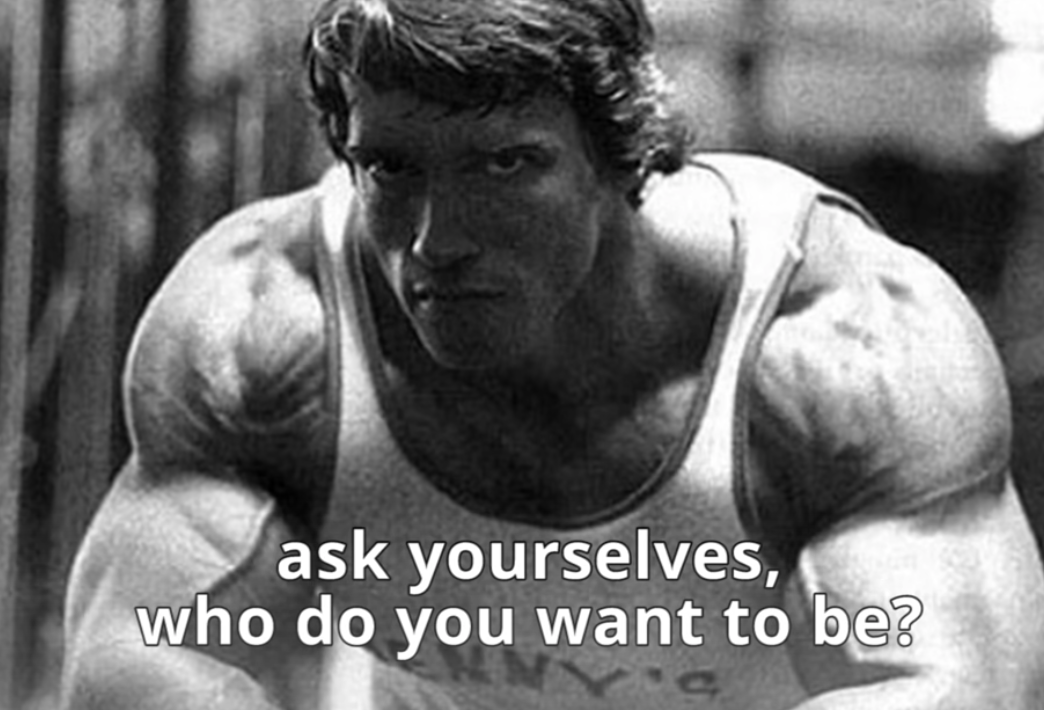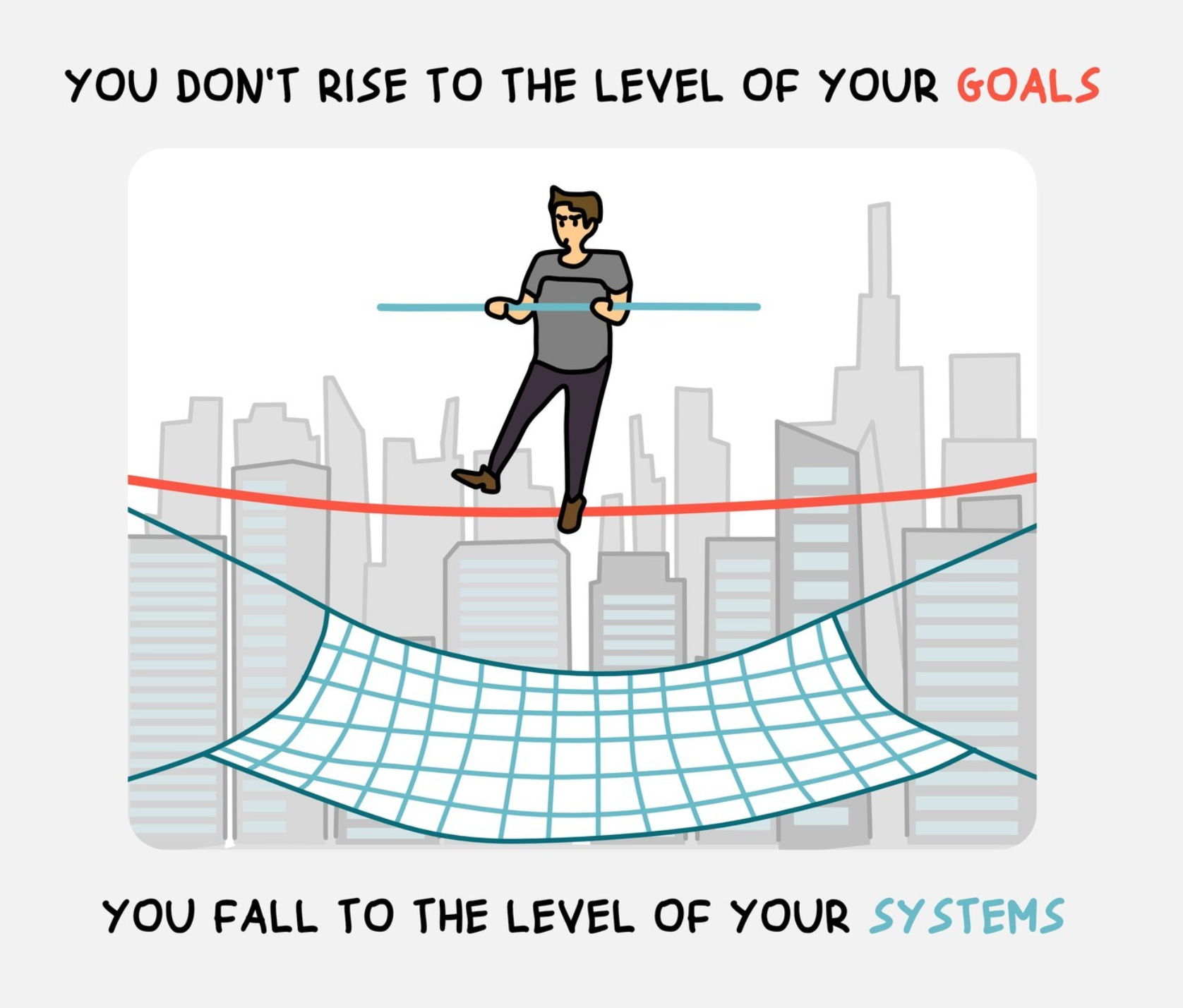Clear Goals
Having clear goals is vital for steering your life.
Goals determine the direction of where you want to go. Hence, establishing clear goals is to establish an aim, the direction of where you want to go.
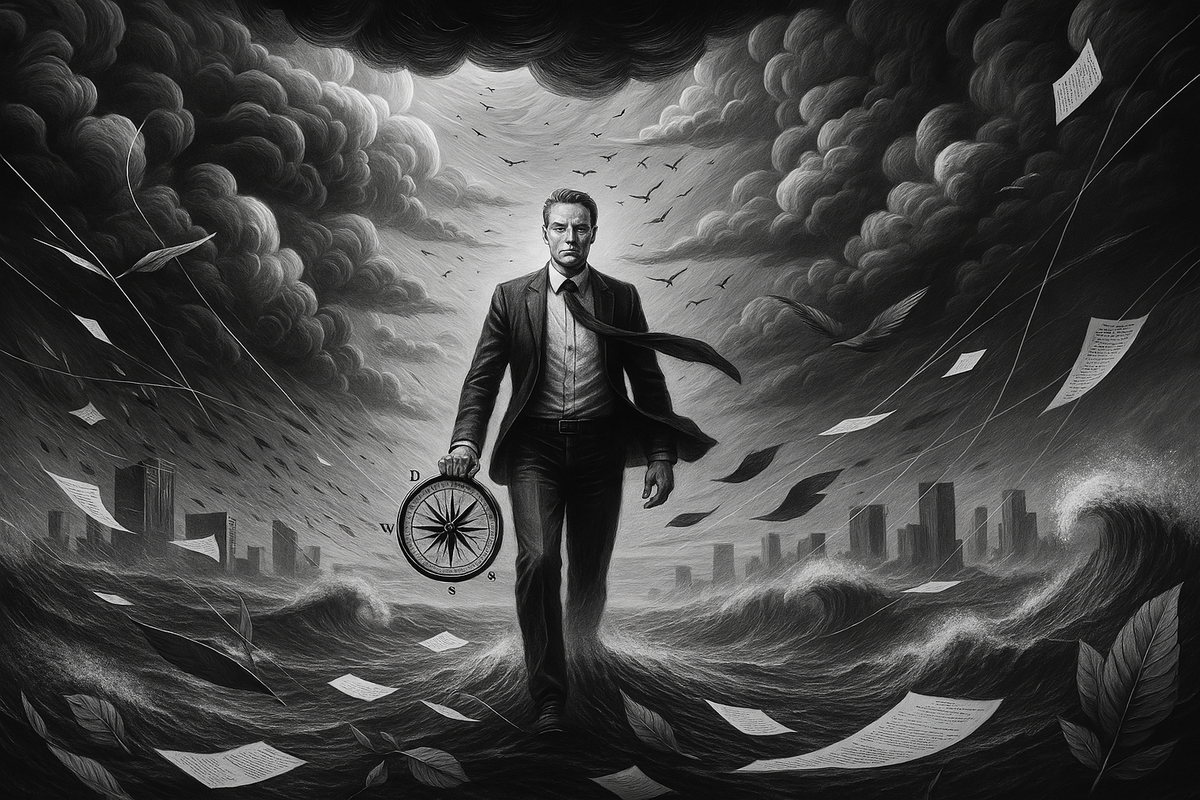
Image Description
Hyper successful people advocate for goal clarity.
Both 1) hyper successful people themselves and 2) established gurus of success training, state: importance of goal clarity. Its not for nothing that we see a pattern of advocating for goal clarity by Ray Dalio in his 5 steps to get what you want stating as his first step to have clear goals. Or in Think and Grow Rich: Six Steps outlined by Napoleon-Hill stating as first step to have exact amount of money to acquire. Or by Arnold Schwarzenegger stating First Rule is Trust Yourself: Figure Out Who You Want to Be.
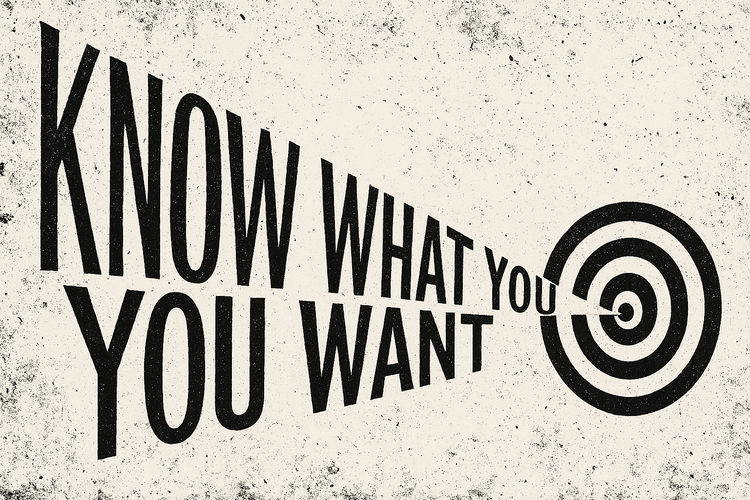
"Life favors the specific ask and punishes the vague wish" - Tim-Ferris
Furthermore, We can logically presume that our chances of arriving of where we want to be are orders of magnitude higher if we have a clear idea of where we want to go. (Dont be Aimless). And put our energy and focus towards that direction.
Genie Laborde way: Have clear outcome
Use See, Feel, Hear terminology
Outcome specification is more specific than "I want X amount of money".
Instead of using abstract numbers of desire, Outcomes are described in terms of:
- You see.
- You hear.
- You feel.
Be specific. Use SEE, FEEL, HEAR terms.
Questions that should be answered
- What do you see?
- What do you hear?
- How do you feel?
Outcome change, Changes our interpretation of Objective Reality
Specifying an outcome can immediately change what you see, hear and feel. - Genie-Laborde
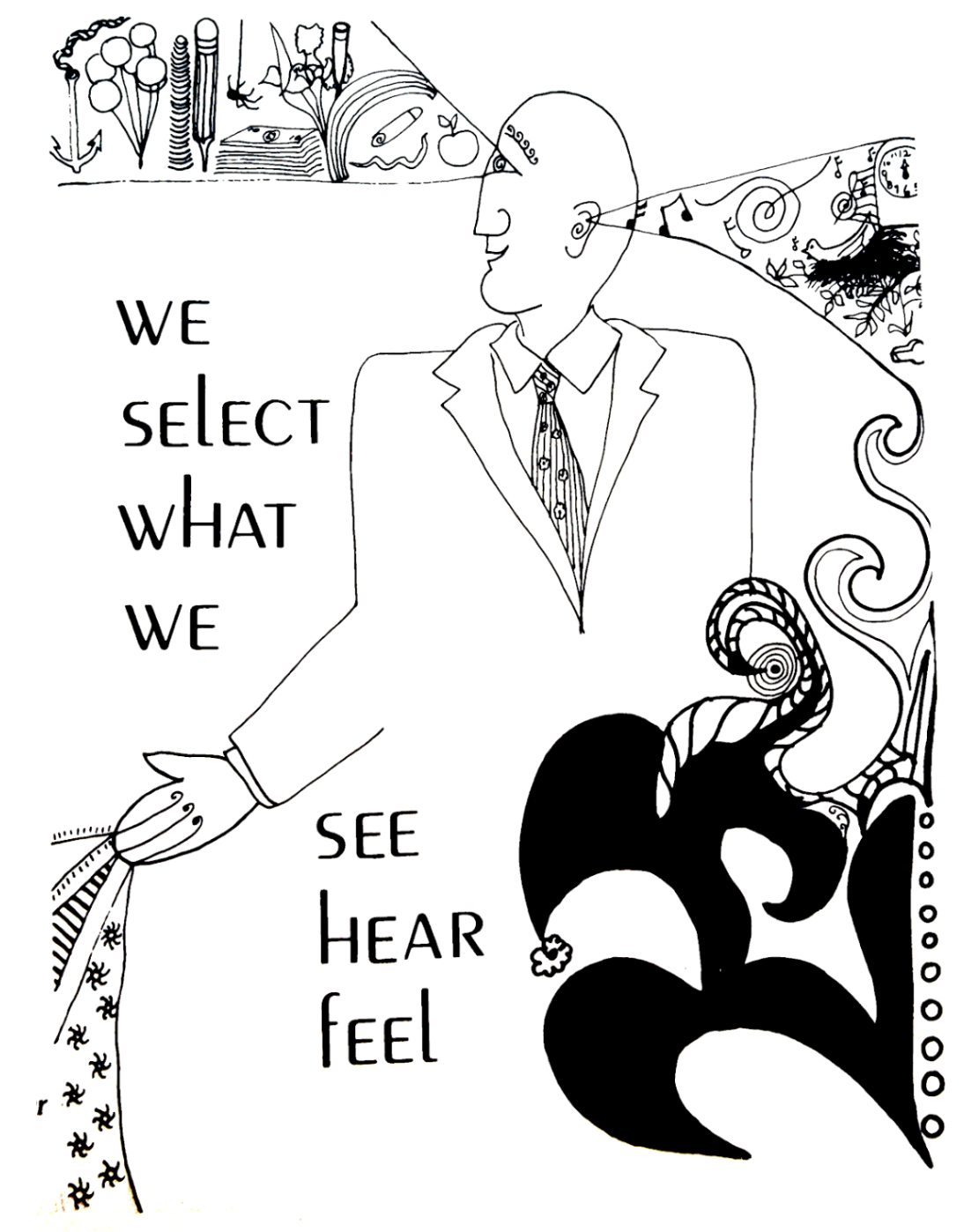
Clarity of outcome points you in the direction towards it
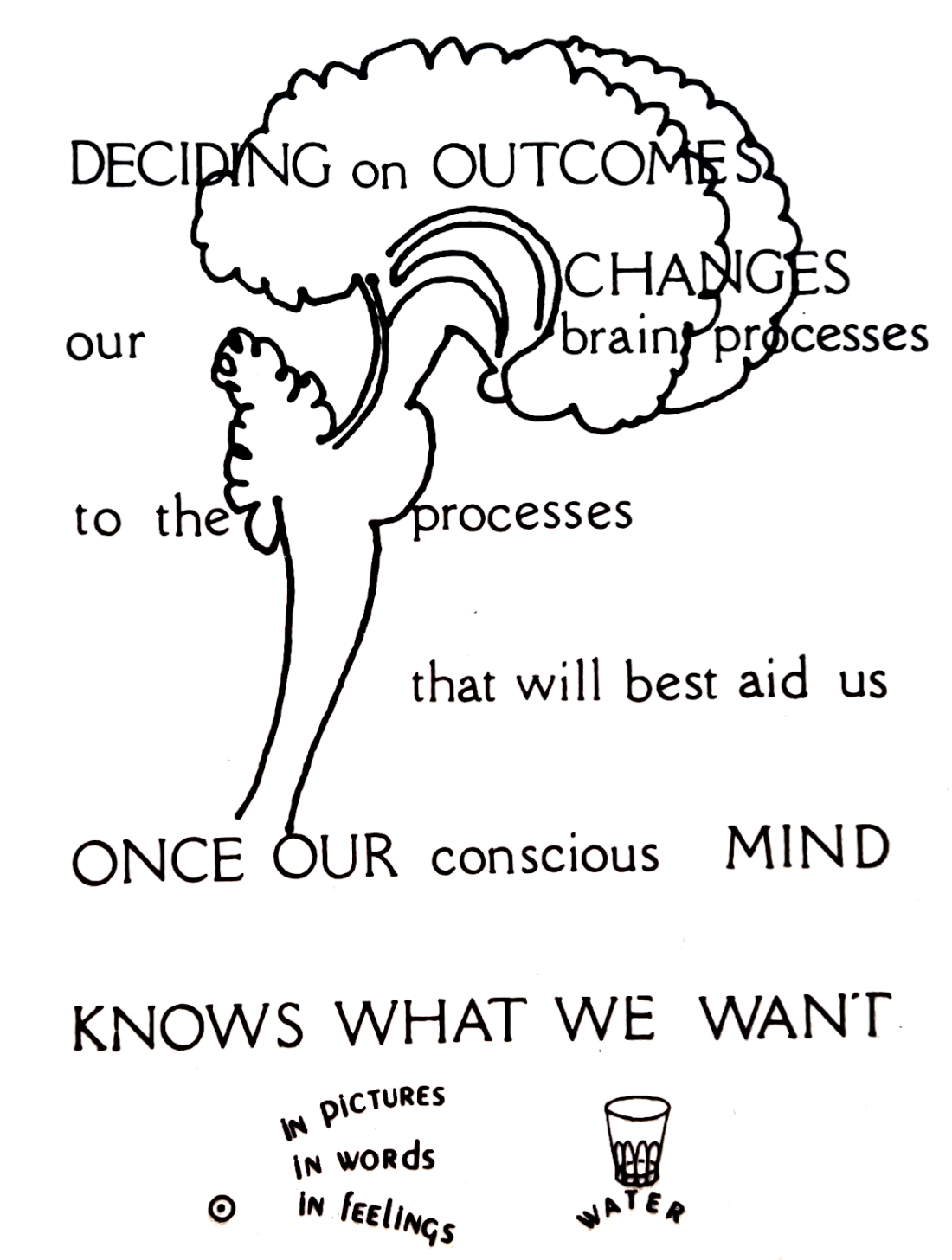
References
- Reference: Book: Influence with Integrity
Arnold: who do you want to become
The first rule is: Trust yourself
And what I mean by that is, so many young people are getting so much advice from their parents and from their teachers and from everyone. But what is most important is that you have to dig deep down, dig deep down and ask yourselves, who do you want to be? Not what, but who.
And I'm talking about not what your parents and teachers want you to be, but you. I’m talking about figuring out for yourselves what makes you happy, no matter how crazy it may sound to other people. - Arnold Schwarzenegger
Imagine for yourself a character, a model personality, whose example you determine to follow, in private as well as in public. - Epictetus
First say to yourself what you would be; and then do what you have to do. - Epictetus
From this instant on, vow to stop disappointing yourself. Separate yourself from the mob. Decide to be extraordinary and do what you need to do--now. - Epictetus
Tim Ferris way: What would excite me.
Tim-Ferris writes that asking a question “What do you want?” is not a good starting point as its too imprecise. He states that “What are my goals?” also falls short of the mark. The question he suggests is “What would excite me?”
Establish the WHY
Why do you want become the person that you want to become.
Why do you want to achieve your SFH-Outcome (See, Feel, Hear).
Why you will prioritize this purpose above other distractions to laser focus on the path to getting there.
Coming up with Magnetic goals
The best goals aren't the goals that you have to push yourself to work towards.
But rather goals that you are magnetized towards. Goals that pull you towards them.
Goals that you can easily be obsessed with. That are easy to make trade off decisions for. As you are going to have to say NO to a lot of other things if your goals are ambitious and you actually develop systems to move towards them.
Related
Hell Yea! or No
Use this rule if you’re often over-committed or too scattered.
If you’re not saying “HELL YEAH!” about something, say no.
When deciding whether to do something, if you feel anything less than “Wow! That would be amazing! Absolutely! Hell yeah!” — then say no.
When you say no to most things, you leave room in your life to really throw yourself completely into that rare thing that makes you say “HELL YEAH!”
Every event you get invited to. Every request to start a new project. If you’re not saying “HELL YEAH!” about it, say no.
We’re all busy. We’ve all taken on too much. Saying yes to less is the way out. - https://sive.rs/hellyeah - Derek-Sivers
The difference between successful people and really successful people is that really successful people say NO to almost everything. - Warren-Buffet
With that said while clear goals are important, they are the first step. Just having goals and dreams is like believing in Law of Attraction, sitting there in the same spot with your calibrated compass of clear direction. Not making any progress on the actions of actually climbing up the mountain where the compass is pointing towards.
Clear goal is the first step.
Necessary, Vital and... not enough by itself.
Hence, once you have determined the clear goal and ready to commit, you have determined the direction of the mountain top of the current clear goal. It's time to design your systems and habits to align with that goal, so that your habits move you closer towards the peak of the mountain every day.
Systems & Habits determine the direction of where you are going. Goals are the thoughts and words that allow us to tailor our actions and habits to align us in the direction of where we want to be. Hyper successful people advocate for crisp goal clarity as first step, and then developing systems to achieve them.
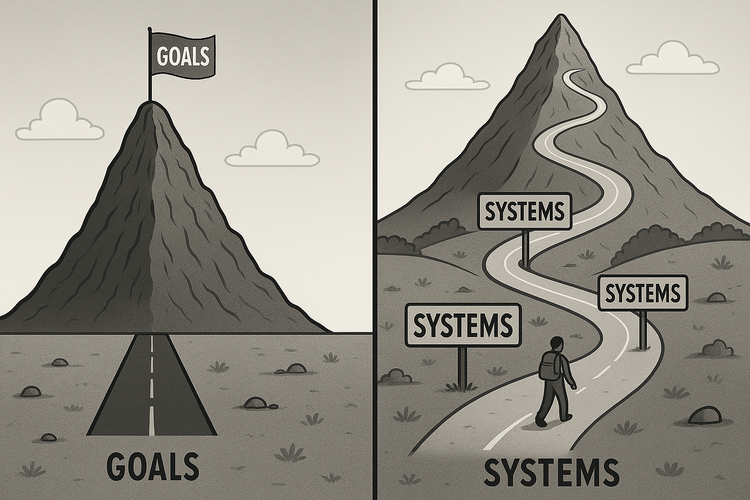
Once you have calibrated the Direction, Then focus on Systems/Habits
Goals are important first step but there are Problems with Goals without systems. Hence, we will aim to focus on systems after having a calibrated compass to point us towards where we want to go.
Goals are about the results you want to achieve.
Systems are about the processes that lead to those results.

Use goals to set direction.
Rely on systems to make progress.
Goals and Systems Simplified
Goals: Your Destination
- Define what you want to achieve.
- Example: "Lose 20 pounds."
Systems: Your Path
- The daily habits that get you to your goal.
- Example: "Daily healthy eating and exercise."
Key Insights:
- Consistency beats intensity: Focus on small, regular actions.
- Enjoy the journey: Process matters more than the end result.
- Be adaptable: Adjust your habits as needed.
- Identity shift: Shift your identity to someone that is aligned with habits that lead to your goal.
Action Steps:
- Break goals into small habits.
- Track your habits.
- Review and adjust regularly.
- Patience is key.
Bottom Line
Goals set the direction; systems ensure progress. Focus on building and maintaining effective systems.
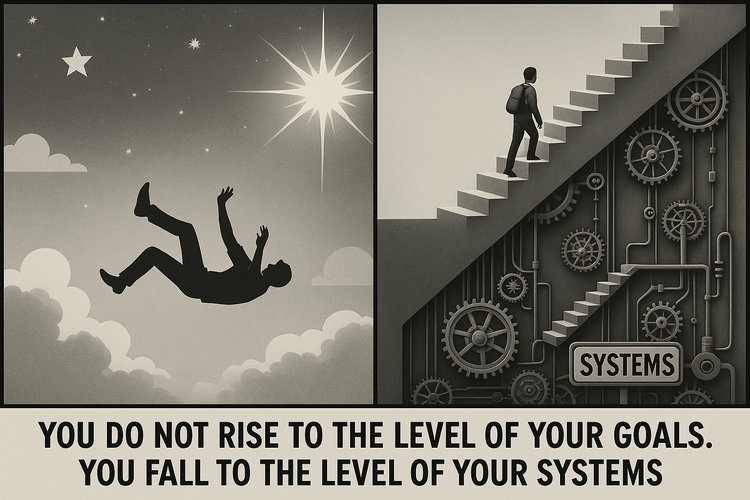
You do not rise to the level of your goals.
You fall to the level of your systems.
The Power of Systems Over Goals
The Essence of the Principle
- Goals: The targets we aim to hit.
- Example: "Win a marathon."
- Systems: The day-to-day behaviors and routines that define our progress.
- Example: "Consistent training schedule and nutrition plan."
Core Insights:
- Achievement mirrors your systems, not your ambitions: Success is less about the goals you set and more about the systems you follow.
- Build robust systems for inevitable success: The strength of your daily practices determines your level of achievement.
- Focus on what you can control: Concentrate on your actions and behaviors, which are within your control, rather than on outcomes, which often aren't.
- Adaptability within systems leads to growth: Systems that allow for feedback and adjustment are more effective in reaching long-term success.
Developing Strong Systems:
- Map out daily and weekly routines that align with your ultimate objectives.
- Implement consistent habits that are directly linked to your areas of focus.
- Regularly review and refine your systems based on outcomes and new insights.
- Embrace an identity that reflects the processes of your systems.
The Fundamental Truth
Your level of success is a reflection of the systems you implement and maintain, not the height of your goals. By focusing on building effective systems, you ensure continuous progress and long-term achievement.
Related
If successful and unsuccessful people share the same goals, then the goal cannot be what differentiates the winners from the losers.
Problems arise when you spend too much time thinking about your goals and not enough time designing your systems.
Problem #1: Winners and losers have the same goals.
Goal setting suffers from a serious case of survivorship bias. We concentrate on the people who end up winning—the survivors—and mistakenly assume that ambitious goals led to their success while overlooking all of the people who had the same objective but didn’t succeed.
Every Olympian wants to win a gold medal. Every candidate wants to get the job. And if successful and unsuccessful people share the same goals, then the goal cannot be what differentiates the winners from the losers. It wasn’t the goal of winning the Tour de France that propelled the British cyclists to the top of the sport. Presumably, they had wanted to win the race every year before—just like every other professional team. The goal had always been there. It was only when they implemented a system of continuous small improvements that they achieved a different outcome.
Problem #2: Achieving a goal is only a momentary change.
Imagine you have a messy room and you set a goal to clean it. If you summon the energy to tidy up, then you will have a clean room—for now. But if you maintain the same sloppy, pack-rat habits that led to a messy room in the first place, soon you’ll be looking at a new pile of clutter and hoping for another burst of motivation. You’re left chasing the same outcome because you never changed the system behind it. You treated a symptom without addressing the cause.
Achieving a goal only changes your life for the moment. That’s the counterintuitive thing about improvement. We think we need to change our results, but the results are not the problem. What we really need to change are the systems that cause those results. When you solve problems at the results level, you only solve them temporarily. In order to improve for good, you need to solve problems at the systems level. Fix the inputs and the outputs will fix themselves.
Problem #3: Goals restrict your happiness. (Happiness is in the future).
The implicit assumption behind any goal is this: “Once I reach my goal, then I’ll be happy.” The problem with a goals-first mentality is that you’re continually putting happiness off until the next milestone. I’ve slipped into this trap so many times I’ve lost count. For years, happiness was always something for my future self to enjoy. I promised myself that once I gained twenty pounds of muscle or after my business was featured in the New York Times, then I could finally relax. Furthermore, goals create an “either-or” conflict: either you achieve your goal and are successful or you fail and you are a disappointment. You mentally box yourself into a narrow version of happiness. This is misguided. It is unlikely that your actual path through life will match the exact journey you had in mind when you set out. It makes no sense to restrict your satisfaction to one scenario when there are many paths to success.
A systems-first mentality provides the antidote. When you fall in love with the process rather than the product, you don’t have to wait to give yourself permission to be happy. You can be satisfied anytime your system is running. And a system can be successful in many different forms, not just the one you first envision.
Problem #4: Goals are at odds with long-term progress.
Finally, a goal-oriented mind-set can create a “yo-yo” effect. Many runners work hard for months, but as soon as they cross the finish line, they stop training. The race is no longer there to motivate them. When all of your hard work is focused on a particular goal, what is left to push you forward after you achieve it? This is why many people find themselves reverting to their old habits after accomplishing a goal.
The purpose of setting goals is to win the game. The purpose of building systems is to continue playing the game. True long-term thinking is goal-less thinking. It’s not about any single accomplishment. It is about the cycle of endless refinement and continuous improvement. Ultimately, it is your commitment to the process that will determine your progress.
Songs
No note with name p.vintrin.song.english-spanish.systems-over-goals found in cache during parsing.
Related
Quotes
“The problem happens when we have multiple desires. When we have fuzzy desires. When we want to do ten different things and we’re not clear about which is the one we care about.” - Naval Ravikant
If you do not change direction. You may end up where you are heading -- Lao-Tzu
Our minds are gyrocompasses of our lives. - Earl-Nightingale/youtube-ref
Alice: “Would you tell me, please, which way I ought to go from here?”
The Cheshire Cat: “That depends a good deal on where you want to get to.”
Alice: “I don’t much care where.”
The Cheshire Cat: “Then it doesn’t much matter which way you go.”
Alice: “…so long as I get somewhere.”
The Cheshire Cat: “Oh, you’re sure to do that, if only you walk long enough.” - Alice in Wonderland Lewis Carroll
“If you don't know what you want, you end up with a lot you don't.” - Chuck-Palahniuk, Fight Club
The world turns aside to let any man pass who knows where he is going. - Epictetus
A man should conceive of a legitimate purpose in his heart, and set out to accomplish it... He should make this purpose his supreme duty, and should devote himself to its attainment, not allowing his thoughts to wonder away into ephemeral fancies, longings and imaginings. This is the road to self-control and true concentration of thought. - rel.from (Private):Book: As a Man Thinketh by James-Allen
Songs
No note with name p.vintrin.song.Clear-Goals found in cache during parsing.
Related
Dont be Aimless
Dont be Aimless
Aimlessness is a vice, and such drifting must not continue for him who would steer clear of catastrophe and destruction.
They who have no central purpose in their life fall an easy prey to pretty worries, fears, troubles and self-pityings, all of which are indications of weakness...
from Book: As a Man Thinketh by James-Allen
If one does not know to which port one is sailing, no wind is favorable. — Seneca
To forget one's purpose is the commonest form of stupidity. — Nietzsche
Alice: “Would you tell me, please, which way I ought to go from here?”
The Cheshire Cat: “That depends a good deal on where you want to get to.”
Alice: “I don’t much care where.”
The Cheshire Cat: “Then it doesn’t much matter which way you go.”
Alice: “…so long as I get somewhere.”
The Cheshire Cat: “Oh, you’re sure to do that, if only you walk long enough.” - Alice in Wonderland Lewis Carroll
Children
- Clear Goals: Daily Questions
- How to Establish Clear Goals
- Magnetic Goals, That Pull You towards Them
- Songs
Backlinks
- Highlighted Notes
- money
- Success
- worry
- Know What You Want
- Do: Act Decisively
- Do: Have Clear Goals
- Do: Take Action
- Do: Take Your Time
- Do Not Rush
- Important-things-are-Free-and-Goal-Setting
- Current-Events
- Do: Laser Focus on What You Control (AntiWorry)
- Focus on your Systems, Not Goals
- Act Smoothly One Step at a Time
